He invented a machine that rolls silverware into napkins. It could be a game-changer for restaurants
Mike Foley’s invention could soon give restaurant workers a break from the monotony of rolling napkins, a form of side-work familiar to waitstaff often viewed as a huge chore.
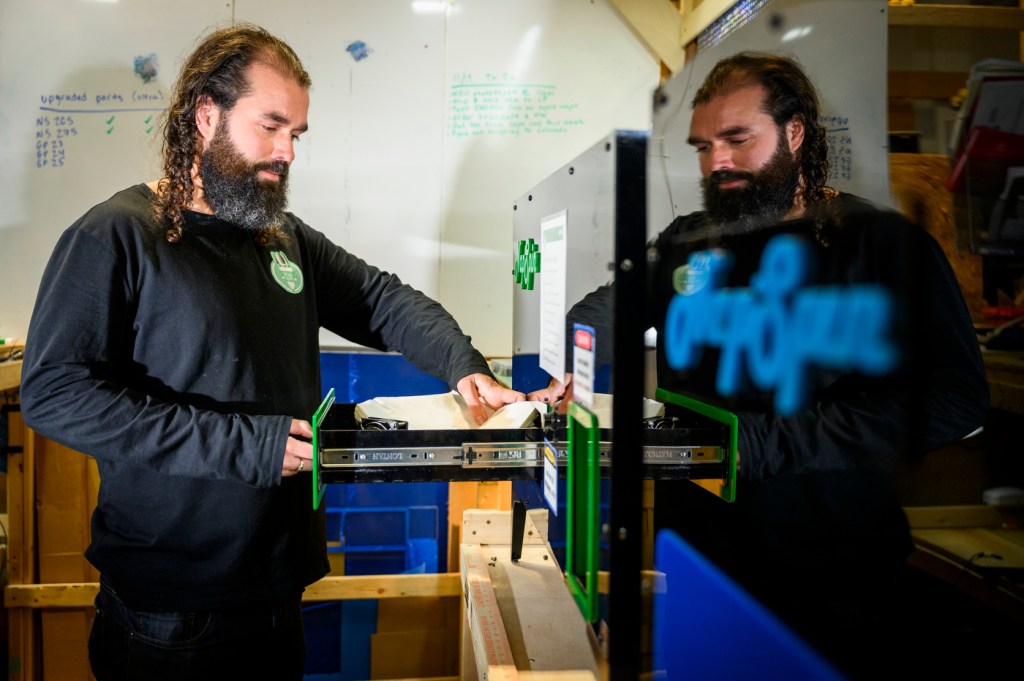
Mike Foley is on a roll.
A 2017 Northeastern University graduate, Foley has worked a lot of jobs. He worked at car manufacturing plants and blood testing facilities. There was a stint designing knee replacements, and one designing boats. “I have a pretty diverse resume,” he says.
Then, roughly three years after graduating — during the first “COVID Christmas” — a conversation with his brother, who works in the restaurant business, gave him an idea that set him down a new path. It would test his skills as a mechanical engineer and, perhaps more importantly, open up new horizons into a world of business and entrepreneurship.
And that idea — a machine that can roll silverware into napkins — could soon give restaurant workers a break from the monotony of rolling napkins, a form of side work familiar to waitstaff often seen as a huge chore.
Editor’s Picks
“My brother told me, ‘I wish there was a machine that could do rollups,’” Foley told Northeastern Global News, recalling that Christmas evening conversation. “Often restaurant workers have to do this at the end of the night, when they either want to go out with their friends or go home to their families.”
Foley fashioned a pretend certificate that he gave to his brother that Christmas, promising to devote a week’s worth of mechanical engineering knowhow to the cause.
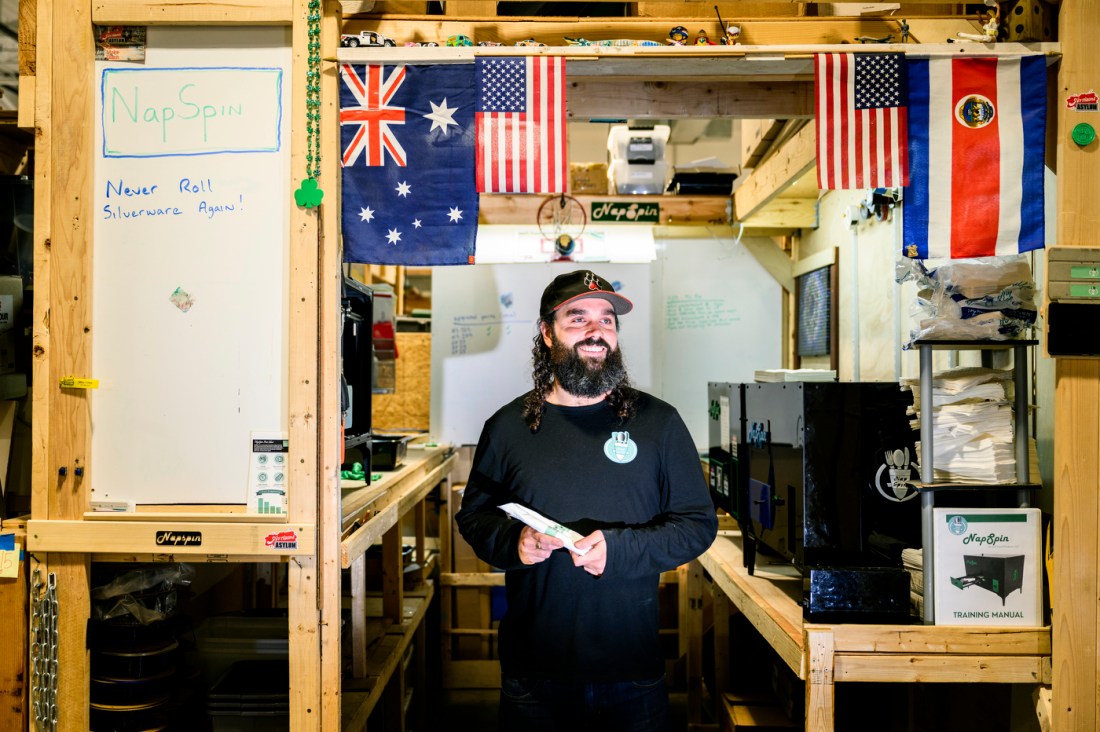
“I had gotten a really great degree from Northeastern, and I was really confident in my skills as a mechanical engineer,” Foley says.
In some ways, what followed is a classic startup story. Living in a cramped North End apartment, Foley worked on his idea — at first part time. He removed the rod from his closet, transforming it into a sitting and standing workspace. He moved his bed to the center of the room, and hung all of his tools on it.
With 3-D printers whirring, he tested different concepts and prototypes — some showing promise. “I thought this actually doesn’t seem too difficult in terms of the complexity and the concepts I was coming up with,” he says.
He reached out to local restaurants to see if they would be interested in a machine that did what he envisioned (they said they definitely were), going as far as cold calling potential customers.
After a year or so of testing, Foley had a workable prototype: a set-it-and-forget-it type device that uses clever engineering to do the magic. The machine is about the size of a mini fridge, if turned onto its side; the user need only place the silverware in one tray, and the napkins in another, then specify how many rollups they want.
Foley put together a concept and company, called NapSpin. He builds all the machines by hand; it takes him about a week and a half to assemble one.
“It’s been an incredible learning experience in terms of rounding out my portfolio,” he says.
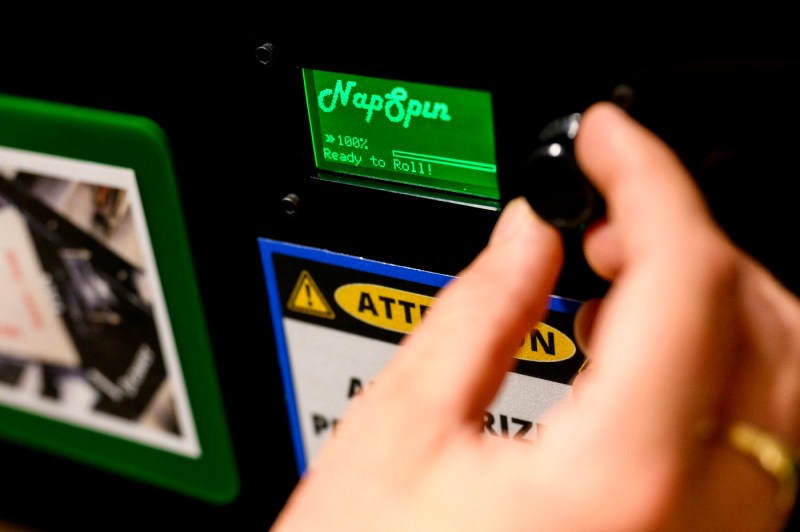
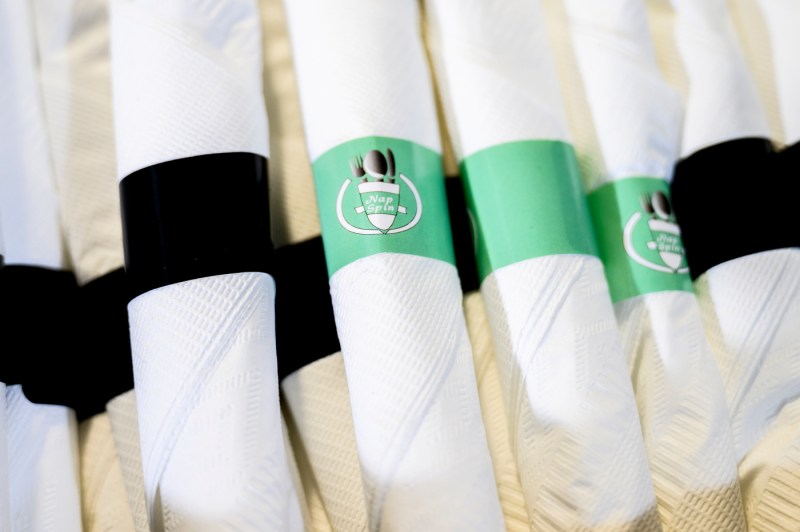
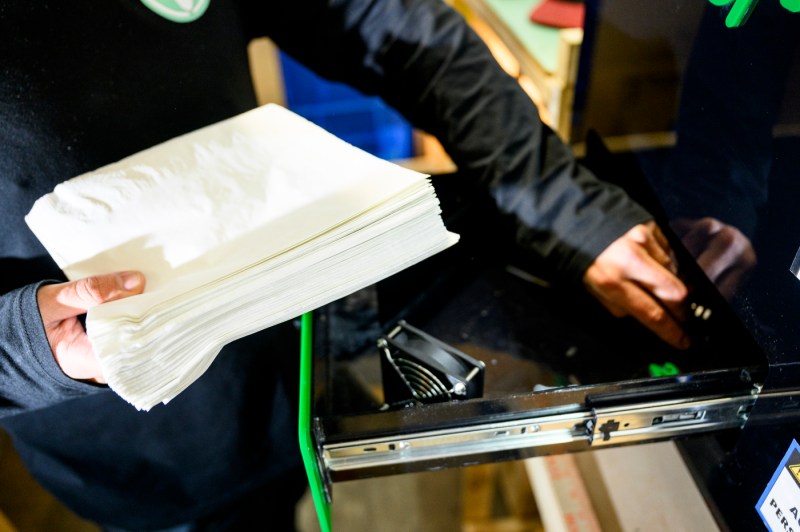
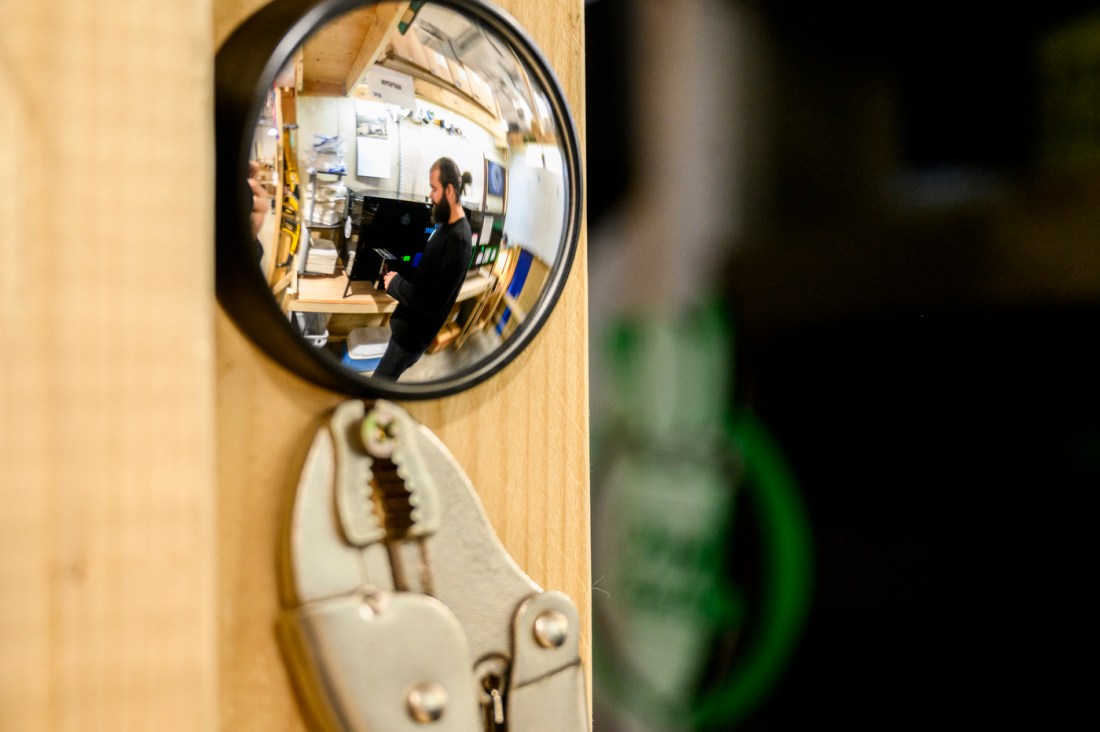
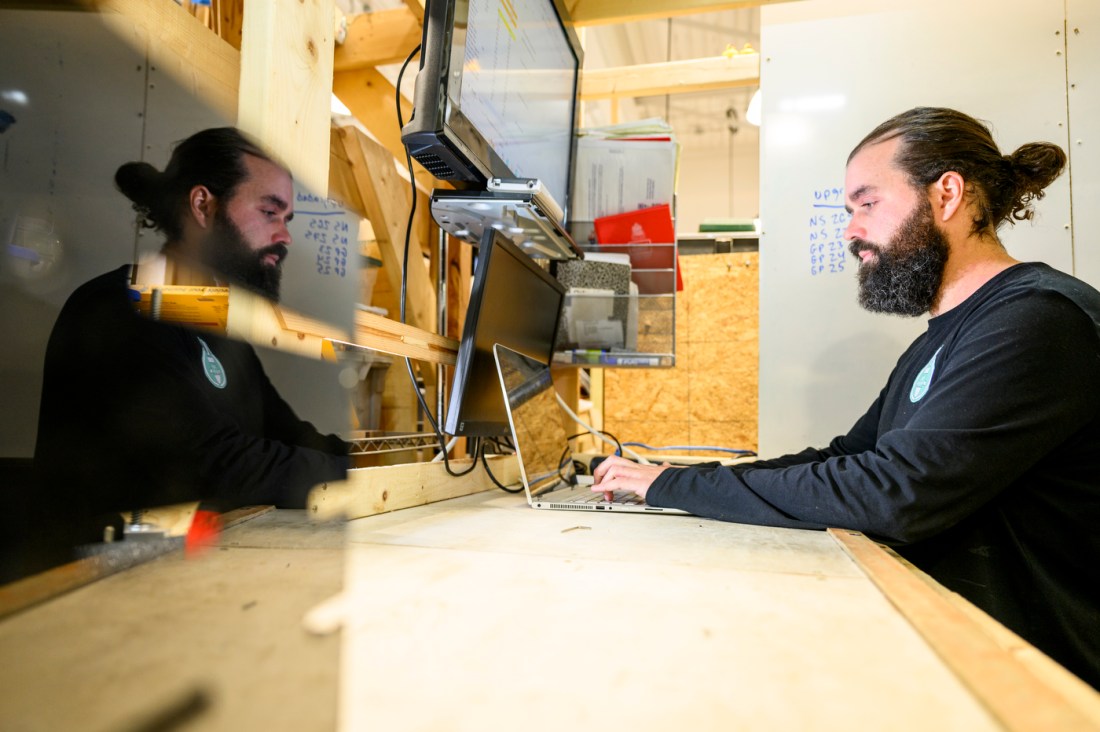
Foley’s idea received two rounds of funding from Northeastern’s GAP fund through its student-run venture accelerator. With the added support, Foley and his team have gone back into research and development with the goal of producing a model that he hopes will be “super rugged, super user-friendly.”
He used some of the Northeastern funding to book a table at the New England Restaurant & Bar Show, the region’s largest food service convention. It was there, at the Prudential Center, that Foley secured his first customers.
The feedback — almost universal — he says was: “How can I get one of these for my restaurant?”
“We demoed a machine at the show, and at that point we were running a delivery service with the machine because it still wasn’t ready for the market,” Foley says. “I would run the machines and deliver completed rollups to Central Square, and then take the clean silverware from them and roll them up again in a cyclical service.”
As of November, Foley has sold several machines to customers, including to a hospital, with ambition to expand.
Foley recently presented the concept at Northeastern’s annual Entrepreneurship & Innovation Expo (NEXPO), an opportunity, he says, that let him connect with young entrepreneurs.
“I was in the same situation they are,” he says. “I had a cool idea; I had ambition; and you really don’t have to be the smartest person in the world to get something done, if you truly believe in it.”
Foley says that although his machines were originally intended for mom-and-pop businesses — diners, pubs and chain restaurants — he hopes to scale up to service hospitals, cruise ships, airlines, hotels and nursing homes, where he sees potential demand.
“It was really nice to show people that you can really do this if you believe in yourself, and you really have a product that you believe in,” he says. “Just go for it and keep going for it, because it was really just pushing and pushing and pushing that got me this far.”











